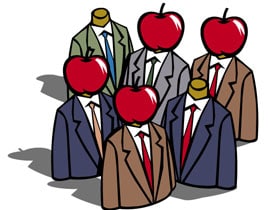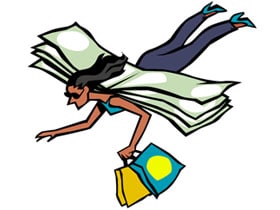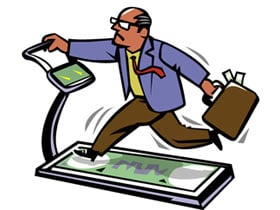
Is the World Out of Recession?
Yes, if you go by the textbook. But it gets hazy if you look at other indicators
Going by the Book
Text books say when the economy shrinks in two consecutive quarters, you have recession. By this measure, the recession is very much behind us. In fact, International Monetary Fund’s World Economic Outlook, released last October starts with this sentence: “After a deep global recession, economic growth has turned positive.” But, that recovery was led by developing economies, and advanced economies were still in recession then.

That has changed now. The US grew 5.7 percent in the last quarter of 2009. Germany, UK, Japan, all grew, albeit at a slower rate. Economists and policy makers are cautious. Harvard’s Kenneth Rogoff, has warned about more sovereign defaults like the one in Greece.
Among BRIC countries (Brazil, Russia, India and China), China and India never went into recession. Brazil briefly did, but its recovery seems pretty strong.
Jobs Where It Matters
Ronald Reagan famously said: “A recession is when your neighbour loses his job; a depression is when you lose yours.” By this definition, recession is still around. In the US, payrolls continued to decline in January (when it declined by $20,000 net). Germany has more unemployed today than three months ago. In Japan, unemployment rate has marginally come down. In developing economies, again, the job market is improving.
What Consumers Say
Real recovery is when consumers spend. US consumers, who reportedly led the boom after the East Asian crisis, aren’t in a hurry to spend now. The Conference Board Consumer Confidence Index came down to 46 in February from 56.5 a month earlier. UK consumer confidence improved in January compared to the previous two months, but deteriorated compared to a year ago. In Brazil and China, retail sales are growing.
(This story appears in the 30 November, -0001 issue of Forbes India. To visit our Archives, click here.)

 What Do the Businessmen Say?
What Do the Businessmen Say?



